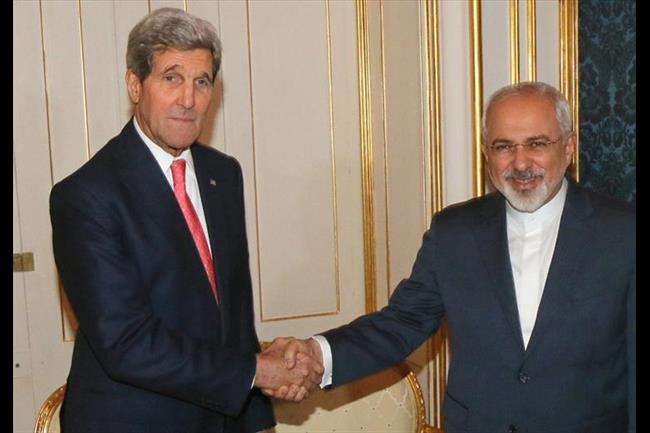What if Iran’s nuclear deadline is missed?
Friday, 19 June 2015
Dr. Majid Rafizadeh/Al Arabiya
With less than two weeks remaining before the June 30 nuclear deadline, the progress between the six world powers (known as the p5+1; the United States, United Kingdom, China, France, Russia, plus Germany) and the Islamic Republic appears to be on the rise and auspicious for the involved parties.
On the one hand, for President Obama, the nuclear deal is a matter of his lifetime’s legacy. For Iranian leaders, on the other hand, the nuclear agreement is a crucial business deal and an economic gain that will boost Iran’s military, and geopolitical influence in the region as well as ensure the hold-on-power of the Iranian government.
Considering all of the political capital that has being spent in the last 18 months of the nuclear talks, the two sides (particularly the United States and the Islamic Republic) appear to hold significant political willingness to brush aside unanswered questions and concerns in order to reach this so-called “historic” final nuclear deal.
Hurdles will not stop the deal
Even recent reports from the International Atomic Energy Agency, the United Nations organization which oversees compliance with established nuclear treaties, raised more concerns about Iran’s nuclear ambitions, and despite the interventionist and aggressive policies of Iran’s Revolutionary Guard Corps increasing in the region, the two sides have continued to make progress and signed several deals, extending deadlines in the last 18 months. This points to the high level of political willingness both sides bear in order to reach a nuclear deal.
For Iranian leaders…the nuclear agreement is a crucial business deal and an economic gain that will boost Iran’s military, and geopolitical influence. The IAEA’s latest report revealed that the Islamic Republic has increased its nuclear stockpile by 20 percent during the nuclear negotiations in the last 18 months. This contradicts President Obama’s claims that Iran’s nuclear program has been “frozen” since the interim nuclear deal was reached in 2013. Nevertheless, this crucial issue did not push the United States and other powers to question Iran’s intentions.
The IAEA previously revealed that Iran’s nuclear program has a military dimension and its military was still working on its nuclear program. The IAEA also could not provide assurance that there did not exist undeclared underground nuclear activities or facilities in Iran. However the IAEA reports did not prevent the United States and the Islamic Republic from making progress in the nuclear talks.
More recently, Iranian President Hassan Rowhani pointed out on Iran state media that the nuclear deal is “within reach” ahead of a June 30 agreement. He added “If the other side sticks to the framework that has been established and does not bring new issues into play, I believe it can be solved and we can reach an agreement… But if they want to take the path of brinkmanship, the negotiations could take longer.”
In addition, President Obama has long believed that this the best deal as he pointed out to his skeptics “When you see the deal, you will see it’s a good deal.” The leaked information from Iranian parliament (Majlis) as well as President Rowhani’s and Foreign minister Javad Zarif’s statements also indicate that Iran’s Supreme Leader, who has the final say on domestic and foreign policy matters, is indeed in favor of a final nuclear deal.As a result, the prospects of the reaching a final nuclear is very likely. Nevertheless, there still exists the lingering question about what will happen if the nuclear talks fail?
What if the nuclear talks fail?
In case the nuclear talks miss the deadline or fail by June 30, there are two possible scenarios. Some scholars, politicians and policy makers believe that if the talks miss the deadline, there would be mutual escalation of tensions, in which the West will ratchet up its economic sanctions on the Islamic Republic, and Iranian leaders will work on their nuclear program at full speed. Nevertheless, this scenario is unlikely.
It is very likely though, that the nuclear talks will go beyond the pre-assigned deadline of June 30. Previously, both parties have missed the deadlines three times, but were finally capable of reaching an interim deal or frameworks a few days after the deadlines. Secondly, if the nuclear talks completely fall apart and if both parts do not reach an agreement even after extensions, they are more likely to go into, what I refer to, as the phase of “contended standoff.”
This follows that both sides will come to an informal recognition that it is in their best interest to continue the pre-signed interim deal and the status quo. Iranian leaders will not publicly boast about speeding up their nuclear activities in order to prevent the enforcement of a new round of economic and financial sanctions. In return, American and other Western leaders would not rally other powers to impose new sanctions on the Islamic Republic.






















